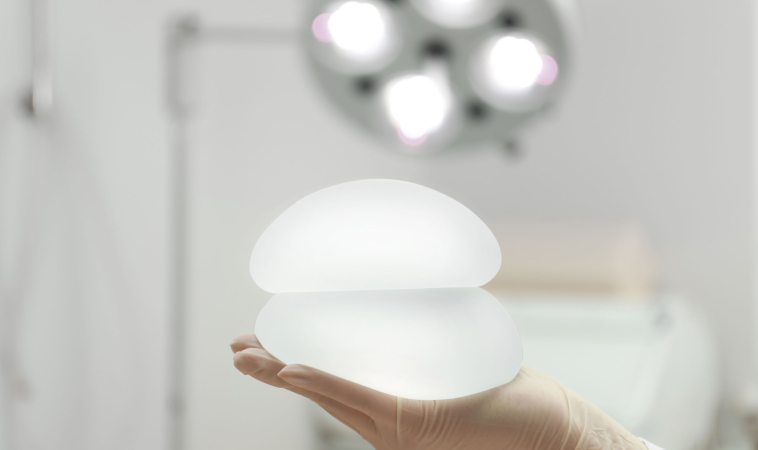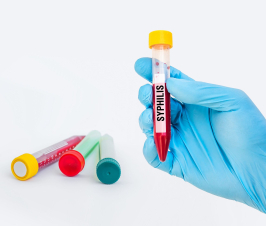Silicone molecules from breast implants can initiate processes in human cells that lead to cell death. Researchers from Radboud University have demonstrated this in a new study that was published on June 12th in Scientific Reports. “However, there are still many questions about what this could mean for the health effects of silicone breast implants. More research is therefore urgently needed,” says Ger Pruijn, professor of Biomolecular Chemistry at Radboud University.
Silicone molecules from breast implants can initiate processes in human cells leading to cell death
The possible side effects of silicone breast implants have been debated for decades. There are known cases where the implants have led to severe fatigue, fever, muscle and joint aches, and concentration disturbance. However, there is as yet no scientific study demonstrating the effect silicone molecules can have on human cells that could explain these side effects.
Silicone in the body
It’s a known fact that breast implants ‘bleed’, i.e. silicone molecules from the implant pass through the shell and enter the body. Earlier research, in 2016, by Dr Rita Kappel, plastic surgeon, and Radboud university medical center, found that silicone molecules can then migrate through the body via the bloodstream or lymphatic system. The biochemists at Radboud University next asked themselves the follow-up question: what effect might silicone molecules have on cells exposed to it?
Cultured cells
Experiments with cultured cells showed that silicones appeared to initiate molecular processes that lead to cell death. “We observed similarities with molecular processes related to programmed cell death, a natural process called apoptosis that has an important function in clearing cells in our body. This effect appeared to depend on the dose of silicone and the size of the silicone molecules. The smaller the molecule, the stronger the effect,” according to Pruijn.
To investigate the effect of silicones on human cells, the researchers have added small silicone molecules — which also occur in silicone breast implants — to three different types of cultured human cells. “One cell was more sensitive to the effect of silicones than the other two cell types. This suggests that the sensitivity of human cells to silicones varies.”
Open Questions
The effects researchers found lead to many new questions. “We observed that silicones induce molecular changes in cells, but we don’t know yet whether these changes could, for example, lead to an autoimmune response, which could in part explain the negative side effects of implants,” says Pruijn.
“Caution is advised with drawing conclusions based on these findings because we used cultured cells in our research, not specific human cells such as brain cells or muscle cells. Further research is required to get more clarity.”
Pruijn
1. Carla Onnekink, Rita M. Kappel, Wilbert C. Boelens, Ger J. M. Pruijn. Low molecular weight silicones induce cell death in cultured cells. Scientific Reports, 2020; 10 (1) DOI: 10.1038/s41598-020-66666-7

Razi Berry is the founder and publisher of the journal Naturopathic Doctor News & Review, which has been in print since 2005, and the premier consumer-faced website of naturopathic medicine, NaturalPath. She is the host of The Love is Medicine Project docuseries, The Natural Cancer Prevention Summit, The Heart Revolution-Heal, Empower and Follow Your Heart, and the popular 10-week Sugar Free Summer program. From a near death experience as a young girl that healed her failing heart, to later overcoming infertility and chronic fatigue syndrome and fibromyalgia through naturopathic medicine, Razi has lived the mind/body healing paradigm. Her projects uniquely capture the tradition and philosophy of naturopathy: The healing power of nature, the vital life force in every living thing and the undeniable role that science and mind/body medicine have in creating health and overcoming dis-ease. You can follow Razi on social media: Facebook at Razi Berry, Instagram at Razi.Berry and join the Love is Medicine group to explore the convergence of love and health. Look for more, and listen to more Love is Medicine podcast episodes here.

















